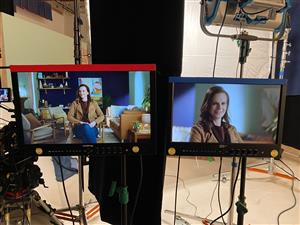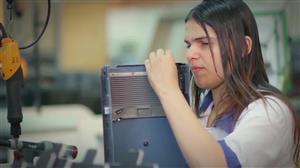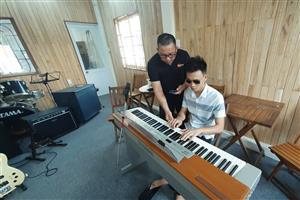Gaming Solutions
Gamification and gaming solutions have become important tools in non-formal educational environments. We welcome technologies that have relevance for persons with disabilities.
The Zero Project's research topics are based on the UN CRPD's definition of rights of persons with disabiltities and seek innovative solutions to advance their implementation. Information & Communication Technology (ICT) has become increasingly important for persons with disabilities. It is therefore included as a research topic in every Zero Project Call for Nominations.
Article 9 of the CRPD focuses on accessibility and mentions ICT specifically in section h): “To promote the design, development, production and distribution of accessible information and communications technologies and systems at an early stage, so that these technologies and systems become accessible at minimum cost.”
Previous research cycles showed great potential for innovation in the following areas. However, these are intended only as examples of possible nominations. Innovative ICT solutions that remove barriers in other areas may be considered as well.
Gamification and gaming solutions have become important tools in non-formal educational environments. We welcome technologies that have relevance for persons with disabilities.
Persons with speech impairments of persons with intellectual disabilities often face obstacles to communicate or comprehend. We are looking for solutions that overcome these obstacles and also use artificial intelligence.
Online maps often lack accessibility features and are only of limited use for persons with disabilities. Zero Projects looks forward to nominations that increase the mobility of persons with disabilities through technology.
The availability of online information has increased the need for organizational tools to focus research and to increase efficiency. We welcome nominations of community tools with relevance for persons with disabilities.
Mobile phones have become the preferred communication tool for many persons with and without disabilities. Zero Project is looking for mobile services and apps that have support relevance for persons with disabilities.
Artificial Intelligence has become a standard feature in many applications and technologies. We are looking for solutions that benefit persons with disabilities and ensure that the use of AI does not discriminate against them.
The availability of spare parts or replacements is sometimes an important barrier for persons with disabilities. 3D printing can not only overcome these barriers but can offer the possibility of new, improved products.
Robotics is a part of engineering and computer science that involves the conception, design, manufacture and operation of robots with the objective to create intelligent machines that can assist humans in a variety of ways.
Social Media is the relevant communication and information tool for many persons. We would like to receive nominations that demonstrate the benefit and support for persons with disabilities.
The recent pandemic has underlined the need for online information that is accessible for everyone. We welcome solutions that make library content available for persons with different disabilities like visual or hearing impairments.
Persons with disabilities often require special devices or software that supports computer navigation. We are welcoming solutions that show new technologies that facilitate the use of any form of computer.
Smart household appliances, connected to phones and the internet will make daily routines and tasks easier and more efficient. The Zero Project is looking for nominations that highlight the benefits for persons with disabilities.
In addition to the CRPD, the #ZeroCall25 research design also draws on publications and reports.
Innovative ICT solutions from previous #ZeroCall research cycles

Canada
Fable Tech Labs is a Canadian start-up that provides digital accessibility services delivered by…

Brazil
The online platform includes a behavioural profile and e-learning courses. An algorithm matches…

Vietnam
In 2015 the Sao Mai Vocational & Assistive Technology Center for the Blind started developing…